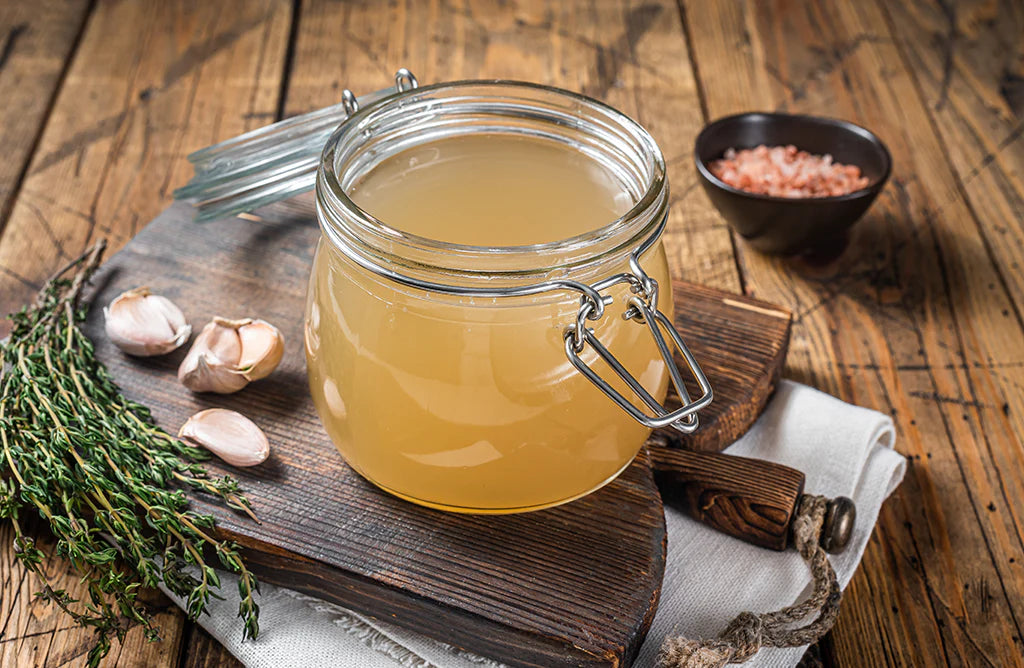Gastric Bypass Surgery Guide
- WHO IS A GOOD CANDIDATE?
- TYPES OF PROCEDURES
- PRE-OPERATIVE ASSESSMENT
- GASTRIC BYPASS SURGERY DIET
- SURGERY DAY & AFTERCARE
- HOW LONG IS RECOVERY?
- POST-OP DIETARY CONSIDERATIONS
- HOW SAFE IS GASTRIC BYPASS?
- ADVANTAGES OF GASTRIC BYPASS
- NUTRITIONAL RISKS
- WHAT TO EXPECT AFTER?
- GASTRIC BYPASS SURGERY FAQ
Gastric Bypass Surgery is a type of Weight Loss Surgery. As with any surgery, Gastric Bypass carries benefits, risks and complications.
You can anticipate losing weight rapidly, decrease many co-morbidities after surgery and likely look and feel better than you have ever before.
Whether you are in the process of getting ready to have Gastric Bypass Surgery or are still deciding, this guide will help you understand how a Gastric Bypass procedure can benefit and offer you.
Who is a good candidate for Gastric Bypass Surgery?
Gastric Bypass Surgery is used to make specific metabolic changes and encourage weight loss in patients with obesity. To qualify for Weight Loss Surgery of any kind requires certain conditions in the patient. Your surgeon will decide whether it's the right solution for you.
Very generally, the Gastric Bypass BMI requirements might look like this:
- BMI of 40 or more (Being overweight by 45.4 kilograms or more).
- BMI of 35 or more and suffer from one or more severe obesity-related co-morbid health concerns.
Types of Gastric Bypass Procedures
Surgeries for weight loss can fall into three categories:
- Restrictive: Limits food intake by reduction of the size of the pouch or stomach
- Malabsorptive: reduces the absorption of food and nutrients by bypassing parts of the small intestine
- Combination of restrictive and malabsorptive
All Gastric Bypass procedures are malabsorptive. Some are a combination of malabsorptive and restrictive.
Roux-en-Y Gastric Bypass (RYGP)
RYGP is the most common type of Gastric Bypass Surgery. RYGP surgery involves modifying the stomach to create a small pouch that has a smaller capacity than before by up to 70-80%. A portion of the small intestine into a "Y." Roux-en-Y is:
- Malabsorptive
- Restrictive
- Highly successful in weight loss
Biliopancreatic Diversion Gastric Bypass (BPD)
Biliopancreatic diversion (BPD) is a less standard procedure. It is more complicated than Roux-en-Y.
- It is primarily malabsorptive (limits food absorption)
- It involves the removal of part of the lower stomach
- BPD is reserved for patients that are severely obese, with a Body Mass Index (BMI) greater than 50.
Pre-Operative Assessment
Before your Gastric Bypass Surgery, you will undergo different pre-operative assessments (pre-op) to ensure your safety and encourage good outcomes long term.
Pre-Op Stage:
Your dietitian will order many blood tests to check your nutritional status. Many WLS patients go into the surgery with typical dietary deficiencies such as Vitamin D, Calcium, Iron and B12. The pre-op stage is an excellent time to catch up on these deficiencies with supplements and good food.
One other step before Gastric Bypass Surgery is a psychological assessment. Making sure you are clear on the changes needed to realise your surgery’s success is a critical step in your preparation. Our food habits are mainly psychological. Investigating your mindset and beliefs around food will be a large part of your focus after your surgery.

Very Low-Calorie Diet:
The pre-op diet is a Very Low-Calorie Diet (VLCD) that encourages a reduction in the size of your liver before your surgery. The pre-op food plan depends on the extent of the reduction in the liver that is required.
This phase is not about weight loss; whilst some weight loss might occur, it is critical in making your surgical procedure safe.
Following the diet is an integral part of your preparation for surgery because if the liver is in the way of the surgeon’s work, the procedure may be aborted until it is safe to try again.

Role of Diet in Gastric Bypass
Making sure your diet after Gastric Bypass Surgery is on point is significant to your weight loss and health gain. It will help you find a bariatric dietitian with whom you relate well to cement the long-term ideal. The proper support and coaching are critical along the way.
The first year is the ideal time for setting up your eating patterns and grasping a complete understanding of the role of diet in Gastric Bypass Surgery.
Pre-Surgery Diet:
Your team will introduce a Gastric Bypass Pre-Surgery diet in the weeks preceding your operation. The prep phase generally includes a Very Low-Calorie Diet (VLCD), higher in protein and lower in carbohydrates.
This can take the form of a pre Gastric Bypass liquid diet; your plan comprises meal replacement shakes and some "allowed foods" such as low GI vegetables and lean meat.
The Pre Gastric Bypass diet plan aims to reduce the size of your liver in preparation for surgery. This vital part of the preparation makes the operation safe to carry out and ensures you are on the way to implementing the dietary changes you'll need to stick with to make the most of your new "tool" after the surgery.

Surgery Day
Your gastric bypass surgery day will arrive in what seems like no time!
You will likely feel both nervous and excited as you prepare, and it is absolutely normal. Try to rest, hydrate, and mentally prepare as much as you can the day before your Gastric Bypass Surgery. And think about all the positive things that lay ahead now that you are on your way to implementing everything you have learned about life after WLS. Take some comfortable clothes, something to read and a positive attitude.
The day after Gastric Bypass Surgery, you will spend recovery in the hospital. The most crucial thing generally is hydration. The surgery, the fast and the drugs will all leave you feeling dehydrated. Sip water regularly, and keep track of your fluid intake as you go.
Gastric Bypass Surgery Aftercare
After your Gastric Bypass Surgery, your recovery will be partially in hospital and at home.
Gastric Bypass Surgery is performed under general anaesthetic and will probably involve 3 to 5 days of hospital stay. The surgery is usually a keyhole procedure, but an open operation is sometimes needed.

How long is recovery from Gastric Bypass?
The length of your recovery at the hospital will depend on a few factors, such as pain management, mobility, hydration, and an overall indication that you are recovering well with no complications. Gastric Bypass Surgery is performed under general anaesthetic and will probably involve 3 to 5 days of hospital stay. The surgery is usually done as a keyhole procedure, but an open operation is sometimes needed.
Once your hospital stay is over, your Gastric Bypass healing time continues at home.
There are certain milestones you will need to commit to as well. Your Gastric Bypass recovery diet is usually divided into three stages. The first two stages of reintroducing foods typically begin with a liquid diet, followed by purees, and then the soft food stage.
Your team will guide you through each one and offer suggestions of what you will need each day. During this healing period, you must follow your post-surgical plan to the letter to avoid any complications from introducing each stage appropriately. It would be best to take it slowly for a while once you get home, your body has undergone significant changes, and it needs to heal physically and adjust metabolically.
Your dietitian will give you some targets to meet for your daily protein and water intake. These need to be satisfied every day to keep you healthy.
Your daily Bariatric Multivitamin supplement will be critical for the recovery process. You will need to take them every day for the rest of your life from here on.
Post Gastric Bypass Surgery Dietary Considerations
Once you make it home from the hospital, you will feel keen to get set up to rest assured you are getting everything you need from the limited post Gastric Bypass diet outlined by your team.
Liquid Stage
The initial meal plan is a liquid diet.
Your liquid diet should consist of nutrient-rich liquid foods such as
- Homemade broths
- Meal replacements
- Protein-rich shakes
- Tasteless collagen in water or smoothies
- Generating hydrating fluids such as water
Once the liquid stage is over, you will gradually move to purees, which can be pretty much anything you can tolerate that fits the criteria of the Gastric Bypass diet:
- Rich in protein
- Low in fat
- Reduced refined carbohydrates
- A range of fruits and vegetables
As your food intake starts to vary more, you will begin to find the foods you best tolerate and those that don't sit well with you. Everyone is different; it is just a time of patience and experimentation.

Soft Stage
The soft food stage is next, and this time you will require foods that are easy to chew and swallow and easily digested.
Slow-cooked meats, scrambled eggs, and soft baked vegetables or soups are great options. Baked beans, tofu and curries also offer some excellent protein and a range of other nutrients that are easy on your new tummy.
You will work out which foods to avoid after Gastric Bypass Surgery that is personal to you, but there is a definite list of foods to avoid as a rule. They are:
- Fried foods
- Heavily processed foods
- Refined foods like biscuits, pastries and pies
- Juice and sweets

After Gastric Bypass Surgery, the risk of dumping syndrome is very real, and lots of sugar and refined foods are generally not well tolerated.
Alcohol is off the list for the first 12 months initially, and after that, it should be reserved for only special occasions.
If you feel stuck for ideas or are unsure how much you should be eating and the timings of your meals, as your Bariatric dietitian for a meal plan suitable for you to follow Gastric Bypass Surgery.
How safe is Gastric Bypass Surgery?
Surgery comes with its risks. Your preparation for surgery contributes to your safety during surgery and your recovery. It's important to follow everything your surgical team has asked you to do in preparation for your Gastric Bypass Surgery.
Complications generally arise from malnutrition, dehydration, or skipping through the prescribed food stages too quickly.
If your team asks you to do something in particular - it is all about good outcomes for you and a speedy recovery.
Advantages of Gastric Bypass Surgery
The advantages of your Gastric Bypass Surgery will quickly start to unfold!
You'll feel less hungry, and more satisfied - you'll have a limit on the amount of food you can eat in one sitting. Coupled with the hormonal or metabolic changes, this all comes together to work WITH you on your weight loss mission. Other benefits of the Gastric Bypass you’ll begin to feel are health improvement and reducing pain levels.
Gastric Bypass Surgery Nutritional Risks and Side Effects
Bypass surgery is major surgery, and following the advice of your surgeon and your support team is essential.
As a result of this significant surgery, your body will almost certainly lose its ability to absorb some vitamins like it used to, as essential nutrients and food now bypass the stomach. Primary nutrients such as B12, Iron, Calcium, and fat-soluble vitamins A, D, E and K generally require regular supplementation.
Without additional nutritional support, you may observe side effects such as muscle aches and pains, tiredness and fatigue, brain fog, pins and needles, and even hair loss. Regular blood tests should be taken to measure your levels. Bariatric specific multivitamins will likely be needed on an ongoing basis.
What to expect after Gastric Bypass Surgery?
Whilst WLS can work in ways that diet and exercise alone cannot, it's essential to ensure you don't have unrealistic expectations after Gastric Bypass Surgery.
Your surgical team will allude to an idea of your expected weight loss after your Gastric Bypass, which will also be called your "goal weight". In the first year, you are not as hungry, and your commitment is high; you will see rapid weight loss is very evident.
After 18 months to 2 years, your hunger returns; you will see how much effort you have put into changing your mindset, portion sizes, and good food choices - this is the most crucial part of the process.

Cost of Gastric Bypass
The average cost of a Gastric Bypass can depend on a few things:
The calibre of the surgeon and the aftercare you receive to help you succeed long term. Whilst a lower price is attractive, often this will include surgery only, and the surgery is only a tiny piece of a rather large puzzle. Opting for the lowest price will ensure you get the surgery, but it might compromise your long-term outcomes.
When looking for a Bariatric practice, look for the additional forms of support included in the package. Spending a bit more might be wiser if you get access to a dietitian, psychologist and exercise physiologist who will walk you along the path to weight loss and good health, rather than pay less for your surgery. The cost for a Gastric Bypass without insurance can be hefty. Still, you can also apply to sacrifice some of your superannuation and gain access to more comprehensive care.
Gastric Bypass Surgery Frequently Asked Questions
-
How does Bariatric Surgery work?
A very brief explanation! Bariatric Surgery reorganises or modifies your digestive system to restrict the volume of food you can eat and helps to rebalance the hormonal messages between your gut and your brain.
The desired outcome: feel less hungry and more satisfied. Gastric Bypass Surgery is an effective tool when used with behaviour modification around food and lifestyle.
-
How does Gastric Bypass make you lose weight?
The surgery modifies the capacity of your stomach, limiting the intake of food. Gastric Bypass is classified as "malabsorptive", meaning you won't absorb as many calories from your food.
It is also "metabolic," which means the procedure changes your system, impacting your hormonal messaging, which helps send better messages of fullness and also reduces type 2 diabetes, which helps fat loss.
-
What is Gastric Bypass pre-op testing?
Before surgery, blood tests ascertain your current health status and are your benchmark for comparison after the surgery. Liver investigations demonstrate how much the liver needs reducing to ensure your procedure is a safe option. Psychological assessment ascertains your readiness for the intense period of change that lies ahead after surgery.
-
How long is the hospital stay after Gastric Bypass Surgery?
Your hospital stay is between 2 and 5 days generally. You will need to meet a few parameters for release that indicate you are ready for taking care of yourself at home.
-
How much weight can you lose with Gastric Bypass Surgery?
A Mayo Clinic study shows that a compliant and motivated patients can lose half of their excess weight or more in two years.
Most patients rapidly lose weight within the first six months after the surgery.After a year or two, the patient will settle with his final weight. Around that time, the patient will lose 65 to 70 per cent of his weight.
The average weekly weight loss initially is around 2.5kg -6.5kg for two to three months. It starts to slow to 1kg per week at about six months.
The rate of weight loss depends on the individual's age, health, compliance and starting weight. -
Why am I not losing weight after Gastric Bypass Surgery?
The honeymoon might be over! After surgery, the initial period is usually when things are going beautifully; you're losing weight, feeling better, and not feeling all that hungry. Whilst weight gain was not something you did every day - neither is weight loss; it will ebb and flow and can be dependent on a range of factors.
Standard energy in must = energy out is a good beginning Sometimes, after the first year of commitment and good behaviour, old habits start to sneak in Protein is always key: Increasing the number of carbs in your meals will leave you hungry and oversupplied with energy, which can impact your results
See your team early when you notice either no weight loss or consistent gain so you can get on top of it early.
-
What can Gastric Bypass patients take for inflammation?
After any Bariatric Surgery, anti-inflammatories and ibuprofen are not recommended. Ibuprofen directly after surgery can increase bleeding of your surgical sites (internal and external), and anti-inflammatories can lead to an increased risk of ulcers at the site of the anastomosis of your Bypass, so you would be wise to steer clear for life after WLS.
Instead, try Panadol and see if that is strong enough. If not, talk to your doctor about managing pain in other ways. Many natural remedies have good evidence for reducing inflammation and pain, and these are easy to obtain as well. As your health improves and your weight is reduced, inflammation also subsides, and you are less likely to need to rely on pain medication regularly.
A natural health practitioner who is well versed in bariatric care is always good to have in your corner!